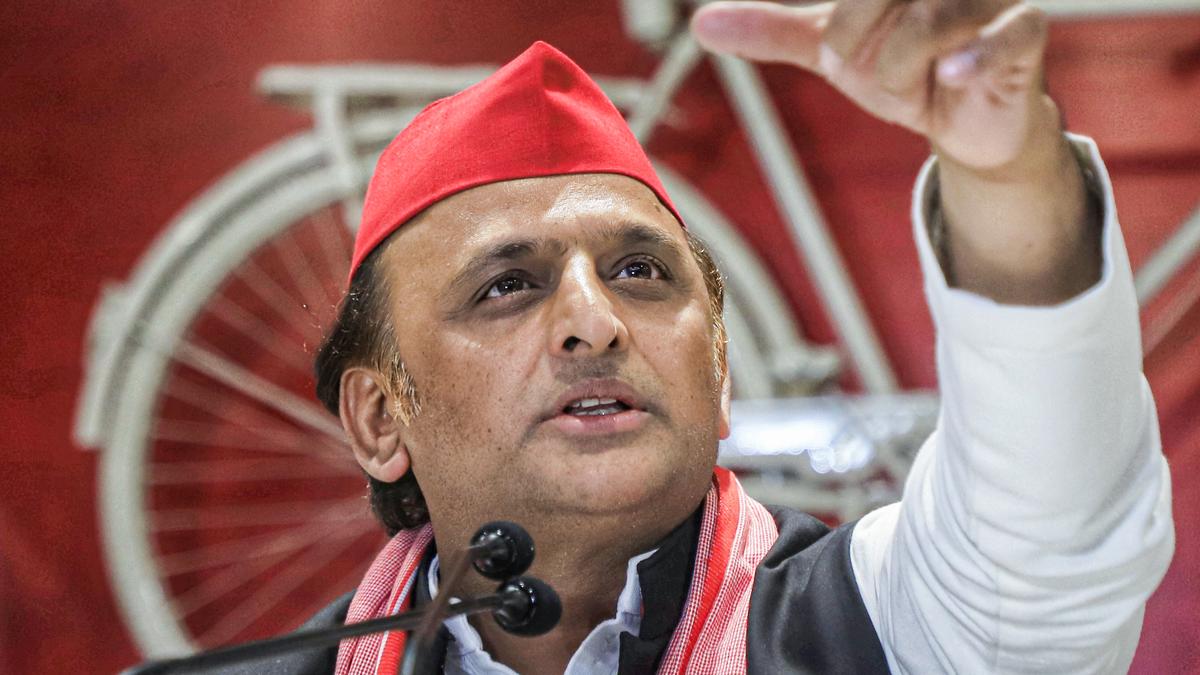The Samajwadi Party (SP) chief Akhilesh Yadav has assured the continuity of his party’s alliance with the Congress, despite the SP’s recent announcement of candidates for six of the ten Uttar Pradesh Assembly seats where bypolls are due. The SP’s decision, made without consulting the Congress, is viewed as a subtle snub to the Congress following its disappointing performances in the recent Haryana and Jammu and Kashmir Assembly elections.
SP’s Declaration of Candidates
On Wednesday, October 9, 2024, the SP announced candidates for six assembly seats in Uttar Pradesh, where bypolls are scheduled later this year. The party chose not to consult with its alliance partner, the Congress, in this decision. The Congress has been pushing to contest five seats in the upcoming bypolls and expressed disappointment at being left out of the decision-making process.
The SP’s candidate selection for the bypolls reflects the party’s strategic focus. The party strategically picked candidates for seats it had already won in previous elections. These are:
- Karhal (Mainpuri): Tej Pratap Yadav, son of Akhilesh Yadav.
- Sisamau (Kanpur city): Naseem Solanki.
- Milkipur (Ayodhya): Ajit Prasad.
- Katehari (Ambedkar Nagar): Shobhawati Verma.
- Phulpur (Prayagraj): Mustafa Siddiqui.
- Majhwan (Mirzapur): Jyoti Bind.
Significance of Candidate Selection
This selection reflects the SP’s attempt to consolidate its existing support base in these constituencies rather than risk venturing into unfamiliar territories. This approach is likely driven by a desire to ensure the party’s winning prospects. The party also has the added advantage of having already secured a majority of the seats, lessening the urgency for consensus-building within the alliance.
The Congress’s Discontent
The Congress, already facing a crisis of confidence after recent electoral defeats in Haryana and Jammu and Kashmir, has voiced dissatisfaction with the SP’s unilateral move. The party was hoping to secure five seats in the bypolls and perceived these as a vital opportunity to demonstrate its strength in Uttar Pradesh, especially given the disappointing show in Haryana and Jammu and Kashmir. The Congress has been lobbying hard for these by-elections, seeking to portray themselves as a key factor in the SP’s campaign and asserting their position as a powerful ally.
The Congress’s stated reasons for seeking a share of seats are as follows:
- Phulpur and Majhwan: The Congress believes it has a strong presence in these areas and is confident of winning.
- Ghaziabad, Khair (Aligarh), and Meerapur (Muzaffarnagar): These are all constituencies where the Congress sees the possibility of winning.
The Impact of Congress’s Discontent
The Congress’s dissatisfaction with the SP’s move has the potential to strain the relationship between the two parties. If the Congress were to decide to go it alone in the bypolls, the SP would be forced to deal with a weakened and disgruntled alliance partner, potentially weakening the SP’s overall performance.
Akhilesh Yadav’s Assurance and Ambiguity
Despite the public display of discord, Akhilesh Yadav has assured the continuation of the alliance with the Congress. He remained cautious about the specifics of the situation, asserting that the INDIA alliance will remain intact, and that the “SP-Congress alliance will remain intact…”
Akhilesh Yadav’s vague assurance, while reassuring some, also leaves a significant room for ambiguity. His emphasis on the INDIA alliance suggests the overall framework of the alliance may endure, but it offers no insight into the specifics of the upcoming bypolls.
This approach could be a calculated attempt by the SP leader to avoid a full-blown public conflict while giving the Congress the space to negotiate its demands behind closed doors.
Strategic Calculations and Future Uncertainties
The SP’s unilateral decision, coupled with Akhilesh Yadav’s ambiguous comments, suggests a complex interplay of strategic calculations at play.
- SP’s focus on strategic consolidation: The SP seems to be prioritizing securing existing seats rather than expanding its reach, potentially hinting at a conservative strategy to safeguard its position.
- Congress’s desire for revival: The Congress appears eager to demonstrate its ability to compete and regain lost ground in Uttar Pradesh. This desire may lead to the party considering contesting these bypolls independently if a satisfactory outcome is not achieved through negotiation with the SP.
- Uncertainty in the Alliance: The current situation suggests the alliance is fragile. Although the SP is maintaining a public face of unity, internal tensions cannot be disregarded. The lack of a concrete action plan for the bypolls further underscores this uncertainty.
The upcoming bypolls are likely to reveal whether the alliance can hold together or if the recent disagreement signals a rift in their collaboration. The results of these elections may well shape the future dynamics of the alliance, impacting the wider political landscape of Uttar Pradesh leading up to the 2029 general election.
Takeaways
- The SP has taken a decisive step by announcing its own candidates for the upcoming by-elections in Uttar Pradesh, leaving the Congress, its ally, with a sense of exclusion.
- This action hints at a potential power shift within the INDIA bloc. While Akhilesh Yadav insists on maintaining the alliance with the Congress, the recent developments leave a degree of ambiguity about its long-term sustainability.
- The Congress may be forced to contemplate independent participation in the by-elections if its demands are not met, adding another layer of complexity to the alliance’s dynamics.
- The bypolls represent a crucial opportunity for the Congress to demonstrate its strength and make a comeback in Uttar Pradesh. However, their success in achieving this goal will depend on the outcome of the negotiations with the SP.
- These events highlight the ongoing power struggles and complexities within the larger political landscape of India.




